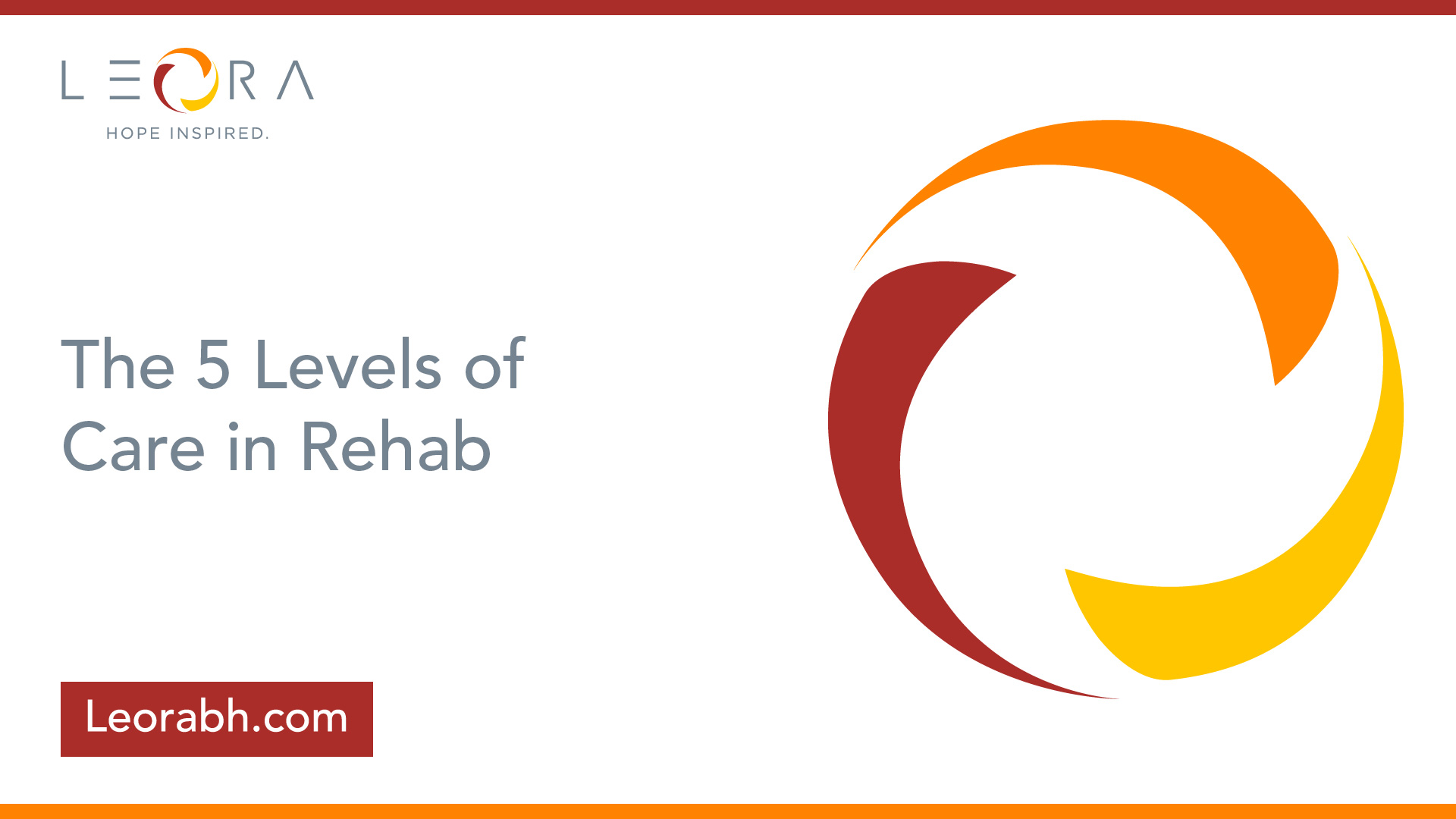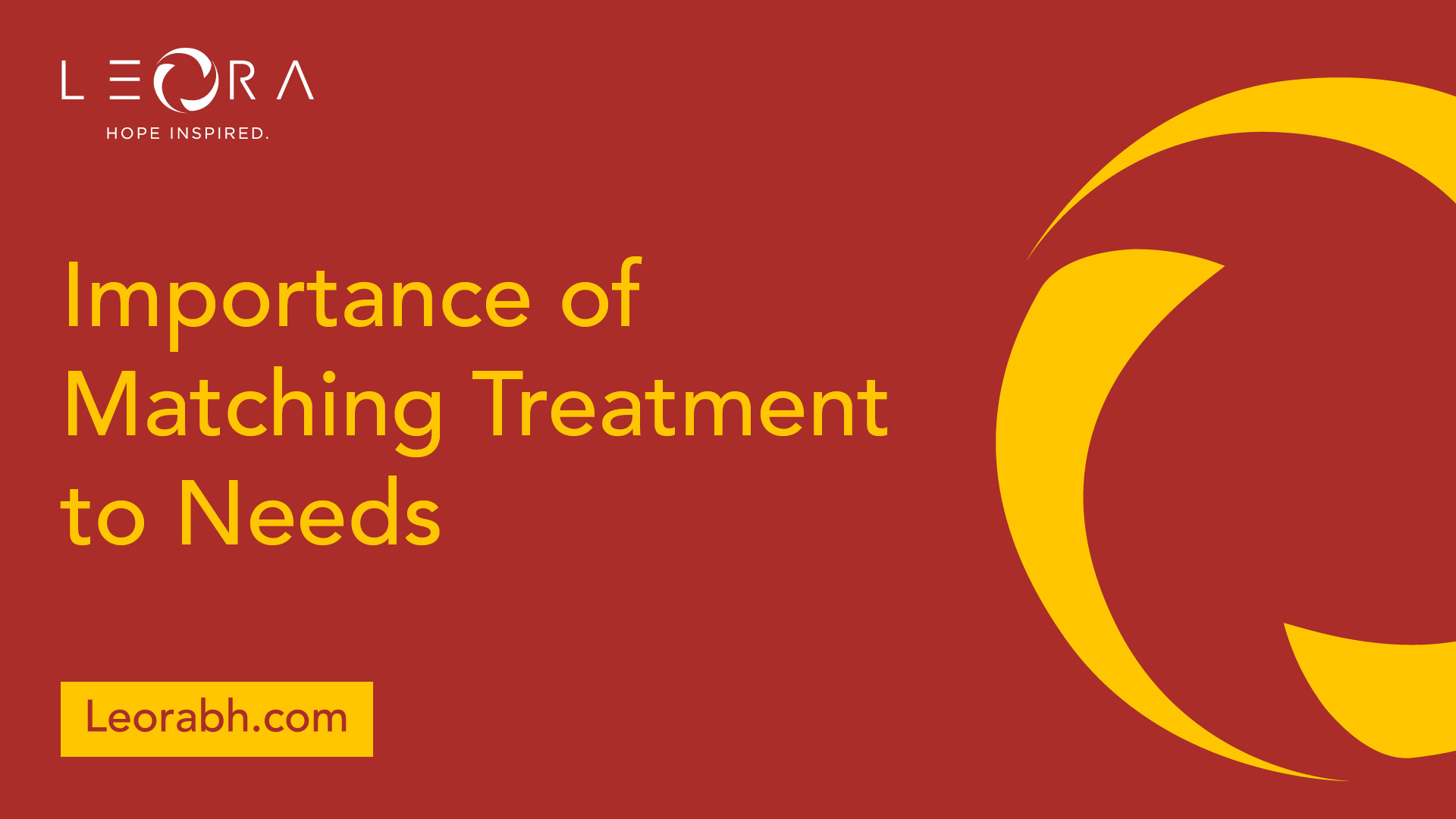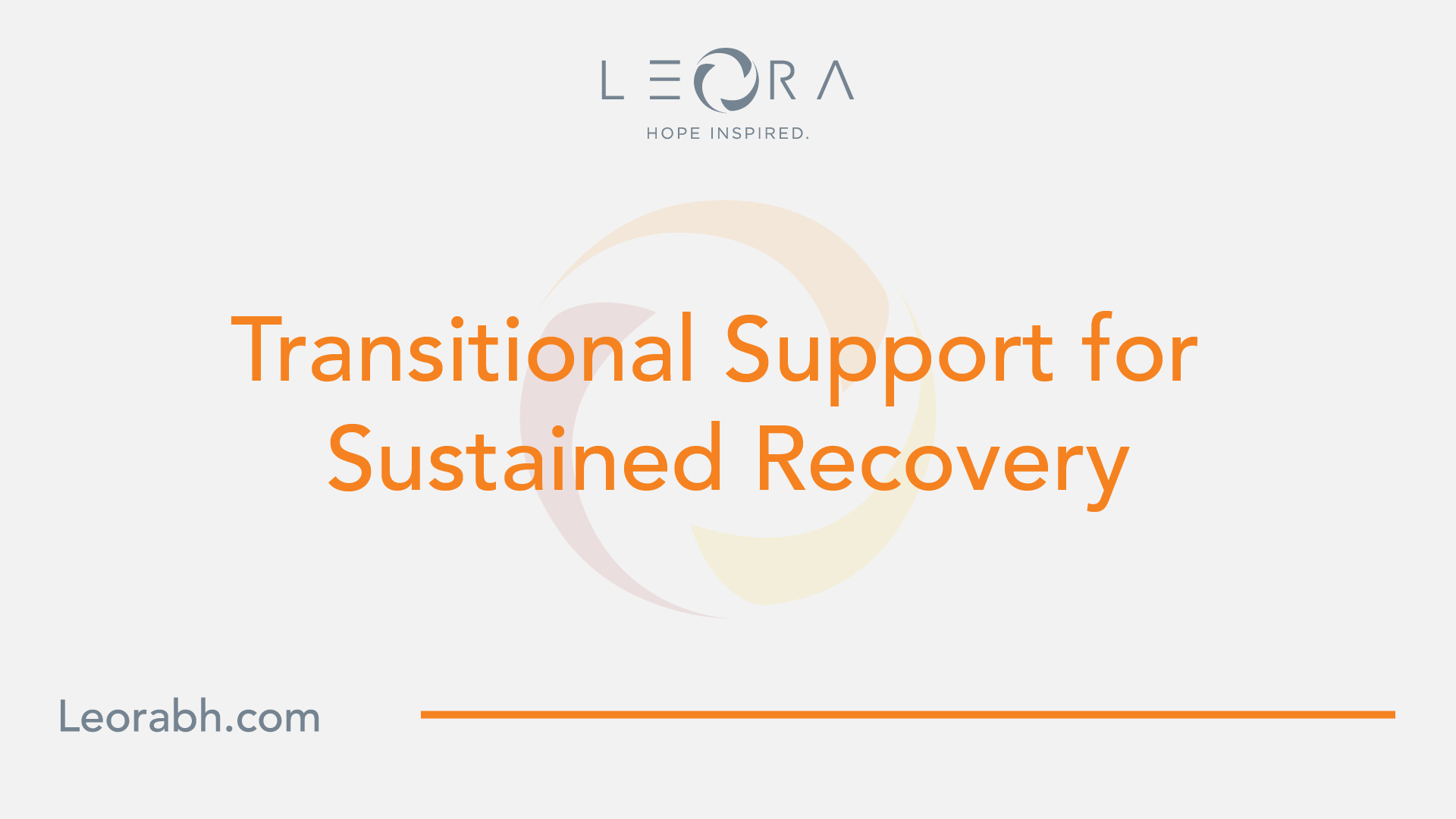The 5 Levels of Care in Rehab
Dive into the 5 levels of care in rehab for empowering progress. Discover the right level for your journey to recovery.
Understanding the Levels of Care in Rehab
When seeking treatment for addiction or substance abuse, it's important to understand the different levels of care available in rehab. These levels of care provide varying intensities of treatment and support, allowing individuals to receive the most appropriate care based on their needs. Matching the treatment to the individual's specific needs is crucial for a successful recovery journey.

The Basics of Rehab Levels
The five levels of care in rehab, as outlined by The Recovery Village and American Addiction Centers, are:
- Medical Detox
- Inpatient Rehab
- Intensive Outpatient Programs (IOPs)
- Outpatient Treatment
- Sober Living
Each level of care offers a different level of support, structure, and treatment intensity. Progression through these levels can occur based on the individual's needs, with the goal of providing the appropriate level of care at each stage of the recovery process.
Importance of Matching Treatment to Needs
Matching the treatment to the individual's needs is crucial for effective rehabilitation. The severity of addiction, the presence of co-occurring mental health disorders, and personal circumstances all play a role in determining the most appropriate level of care.
For example, individuals who require medical supervision during withdrawal from drugs or alcohol may benefit from starting with the first level of care: Medical Detox. This level focuses on managing the physical symptoms of withdrawal in a safe and supervised environment, often with the assistance of medications to alleviate discomfort.
As the recovery journey progresses, higher levels of care may be necessary for individuals requiring more intensive support. Inpatient Rehab, the second level of care, provides 24/7 support in a residential setting. It offers intensive therapy, counseling, and other services to address the underlying issues of addiction. This level of care is recommended for individuals who require a higher level of structure and supervision.

Intensive Outpatient Programs (IOPs), the third level of care, are suitable for individuals who do not require 24-hour supervision but can benefit from a structured treatment program several times per week. IOPs often include group therapy, individual counseling, and educational sessions to support long-term recovery.
As individuals progress in their recovery and gain more stability, they may transition to Outpatient Treatment, the fourth level of care. This level allows individuals to attend therapy and counseling sessions while living at home, providing flexibility for those who have completed higher levels of treatment but still require support in managing their recovery and preventing relapse.
The final level of care, Sober Living, offers transitional support for sustained recovery. Sober living homes provide a supportive and drug-free environment where individuals can practice and embrace a sober lifestyle while gradually reintegrating into society.
By understanding the different levels of care in rehab and matching the treatment to the individual's needs, the recovery journey can be tailored to provide the most effective support and promote long-term sobriety.
Level 1: Medical Detox
The first level of care in rehab is medical detox, an essential step in the recovery journey. Medical detox focuses on the safe and supervised withdrawal from drugs or alcohol, helping individuals manage the physical symptoms of withdrawal [1]. The primary purpose of medical detox is to provide a supportive environment where individuals can undergo withdrawal while minimizing discomfort and ensuring their safety.
During medical detox, individuals receive professional supervision and support from medical professionals, addiction specialists, and nursing staff. This level of care is crucial, especially for individuals with severe addiction or those who have a history of medical complications during withdrawal.
The process of medical detox may involve the use of medications to alleviate withdrawal symptoms and reduce cravings. These medications are administered under the guidance of medical professionals, who carefully monitor their effectiveness and adjust the dosage as needed. The use of medications during medical detox can significantly improve the overall experience and increase the likelihood of successfully completing the detoxification process.
The duration of medical detox varies depending on the individual's substance of abuse, the severity of their addiction, and their overall health. It is essential to remember that medical detox is just the initial step in the recovery journey and should be followed by further treatment to address the underlying causes of addiction and develop strategies for long-term recovery.
By providing a safe and supportive environment, medical detox sets the foundation for successful addiction treatment. It helps individuals overcome the physical dependence on substances and prepares them for the next level of care in their rehab journey. The supervision and support received during medical detox are invaluable in ensuring a smooth transition to the next phase of treatment.
Level 2: Inpatient Rehab
Inpatient rehab, the second level of care in the rehabilitation process, offers individuals a structured and supportive environment to address the underlying issues of addiction. This level of care is recommended for individuals who require a higher level of supervision, structure, and support in their recovery journey [1].
24/7 Support and Structure
Inpatient rehab provides individuals with round-the-clock support in a residential setting. This level of care ensures that individuals have access to a safe and controlled environment where they can focus on their recovery. The presence of trained professionals and staff members allows for immediate assistance and supervision, ensuring the well-being of the individuals throughout their stay.
The structured nature of inpatient rehab programs helps individuals establish routines and develop healthy habits. Daily schedules typically include a combination of therapy sessions, group activities, educational workshops, and recreational opportunities. This structured approach helps individuals maintain focus and make progress in their recovery journey.

Intensive Therapy and Counseling
Intensive therapy and counseling are integral components of inpatient rehab programs. These programs offer a range of evidence-based therapies tailored to the unique needs of each individual. By delving into the root causes of addiction and addressing underlying issues, inpatient rehab aims to promote lasting recovery.
Therapy sessions in inpatient rehab may include individual counseling, group therapy, family therapy, and specialized therapies such as cognitive-behavioral therapy (CBT) or dialectical behavior therapy (DBT). These therapeutic approaches help individuals develop coping strategies, improve self-awareness, and learn skills to prevent relapse.
In addition to therapy, inpatient rehab programs often provide educational workshops and classes that focus on relapse prevention, life skills development, and holistic wellness. These additional resources further support individuals in their recovery journey and equip them with tools for long-term success.
By offering 24/7 support, a structured environment, and intensive therapy and counseling, inpatient rehab programs provide individuals with the necessary foundation for recovery. This level of care is particularly beneficial for individuals with severe addiction issues who require a higher level of structure and supervision to overcome their challenges and achieve lasting sobriety.
Level 3: Intensive Outpatient Programs (IOPs)
Intensive Outpatient Programs (IOPs) are an integral part of the five levels of care in rehab, offering a structured and flexible treatment option for individuals who do not require round-the-clock supervision but can benefit from a more intensive treatment program several times per week. IOPs play a crucial role in supporting long-term recovery and helping individuals transition back into their daily lives while still receiving the necessary support and guidance.
Structured Treatment with Flexibility
IOPs provide a structured treatment environment that offers a balance between support and independence. These programs typically involve multiple sessions per week, allowing individuals to attend therapy, counseling, and educational sessions while accommodating their personal and work commitments. The American Society of Addiction Medicine (ASAM) criteria outline that IOPs should provide a minimum of nine hours of clinical services per week [2].
The flexibility of IOPs allows individuals to maintain their daily routines while actively participating in their recovery journey. This level of care is particularly beneficial for individuals who have completed a higher level of care, such as inpatient rehab, and are ready to transition into a more independent setting.
Group Therapy and Counseling
Group therapy and counseling are key components of IOPs. These sessions provide a supportive and therapeutic environment where individuals can share experiences, gain insights, and receive guidance from peers and trained professionals. Group therapy allows participants to connect with others who are going through similar challenges, fostering a sense of community and reducing feelings of isolation.
In addition to group therapy, IOPs often incorporate individual counseling sessions. These one-on-one sessions provide a personalized approach to address specific needs and challenges, allowing individuals to delve deeper into their recovery journey.
Through group therapy and counseling, individuals in IOPs can develop essential coping skills, learn healthy communication techniques, and receive guidance on relapse prevention. These therapeutic interventions are designed to equip individuals with the tools they need to navigate the challenges of recovery successfully.
By offering a structured treatment program and a supportive community, IOPs provide individuals with the opportunity to continue their recovery journey while gradually reintegrating into their daily lives. The combination of structured treatment and flexible scheduling allows individuals to address their addiction issues while still fulfilling their personal and professional responsibilities.
Level 4: Outpatient Treatment
Outpatient treatment, the fourth level of care in rehab, offers individuals the opportunity to receive therapy and counseling while residing in the comfort of their own homes. This level of care is designed for individuals who have completed higher levels of treatment but still require ongoing support in maintaining their recovery and preventing relapse [1].
Therapy and Counseling at Home
Outpatient treatment allows individuals to attend therapy and counseling sessions without the need for residential or inpatient care. This flexibility enables individuals to continue their daily routines, such as work or school, while also prioritizing their recovery. Therapy and counseling sessions may be conducted individually or in a group setting, depending on the specific needs and preferences of the individual.
During outpatient treatment, individuals have the opportunity to work closely with addiction specialists, therapists, and counselors who provide guidance and support throughout their recovery journey. These professionals help individuals explore the root causes of their addiction, develop coping mechanisms, and learn essential skills for long-term sobriety.
Maintaining Recovery and Preventing Relapse
One of the primary goals of outpatient treatment is to equip individuals with the necessary tools and strategies to maintain their recovery and prevent relapse. Through ongoing therapy and counseling sessions, individuals learn to identify triggers and develop effective techniques to manage cravings and urges.
Outpatient treatment also offers the opportunity for continued education about addiction and recovery. This education helps individuals deepen their understanding of the recovery process, enabling them to make informed decisions and maintain a strong support system.
Additionally, outpatient treatment often includes support groups, where individuals can connect with others facing similar challenges. These groups provide a sense of community, encouragement, and accountability, which are vital aspects of sustained recovery.
It is important to note that the duration and intensity of outpatient treatment may vary depending on the individual's specific needs and progress. Some individuals may require more frequent sessions at the beginning of their outpatient treatment, gradually transitioning to less frequent sessions as they gain stability and confidence in their recovery.
Outpatient treatment serves as a crucial step in the continuum of care, offering ongoing support to individuals who have completed higher levels of treatment. By providing therapy, counseling, education, and support groups, outpatient treatment empowers individuals to maintain their recovery, build a sober lifestyle, and thrive in their journey towards long-term sobriety.
Level 5: Sober Living
In the journey towards sustained recovery from addiction, Level 5 of care in rehab involves the option of sober living. Sober living provides transitional support for individuals who have completed higher levels of treatment and are ready to embrace a sober lifestyle.
Transitional Support for Sustained Recovery
Sober living environments serve as a bridge between the structured treatment setting and independent living. These supportive residences offer a safe and substance-free space where individuals can continue their recovery journey while gradually reintegrating into society. According to the National Center for Biotechnology Information, transitional care plays a crucial role in promoting the safe and timely passage of individuals between levels of care and across different care settings.
Sober living homes provide a supportive community of individuals who understand the challenges of addiction and are committed to maintaining a drug-free lifestyle. Living in such an environment allows individuals to develop healthy routines, establish peer support networks, and practice the coping skills learned during treatment. The structured nature of sober living homes helps to reinforce positive habits and reduce the risk of relapse.
Embracing a Sober Lifestyle
Embracing a sober lifestyle involves making a conscious decision to prioritize one's physical and mental well-being. Sober living offers individuals the opportunity to fully immerse themselves in a drug and alcohol-free environment, creating an optimal space for personal growth and recovery. This environment encourages residents to adopt healthy habits, build resilience, and develop a sense of accountability.
Being part of a sober living community provides individuals with ongoing support and encouragement. Residents often participate in regular house meetings, group therapy sessions, and peer-led support groups. These interactions foster a sense of belonging and promote emotional healing, as individuals share their experiences, challenges, and successes with one another.
In addition to the supportive environment, sober living homes also emphasize the development of life skills. Residents are encouraged to pursue educational opportunities, seek employment, and cultivate meaningful relationships. This holistic approach to recovery helps individuals rebuild their lives and establish a solid foundation for long-term sobriety.
By offering transitional support and promoting a sober lifestyle, Level 5 of care in rehab, which includes sober living, plays a vital role in facilitating sustained recovery. It provides individuals with the necessary tools, support, and community to navigate the challenges of early recovery and build a fulfilling life free from the grip of addiction.
References
Find Your Inner Light
Related Articles
Contact Us
Leora Behavioral Health offers a comprehensive addiction treatment programs to help you get your life back on track.
Our trained professionals will work with you to develop a personalized treatment plan that meets your unique needs. If you or someone you know is struggling with addiction, reach out to Leora Behavioral Health today.


.svg)





.svg)
.svg)
.svg)
.svg)